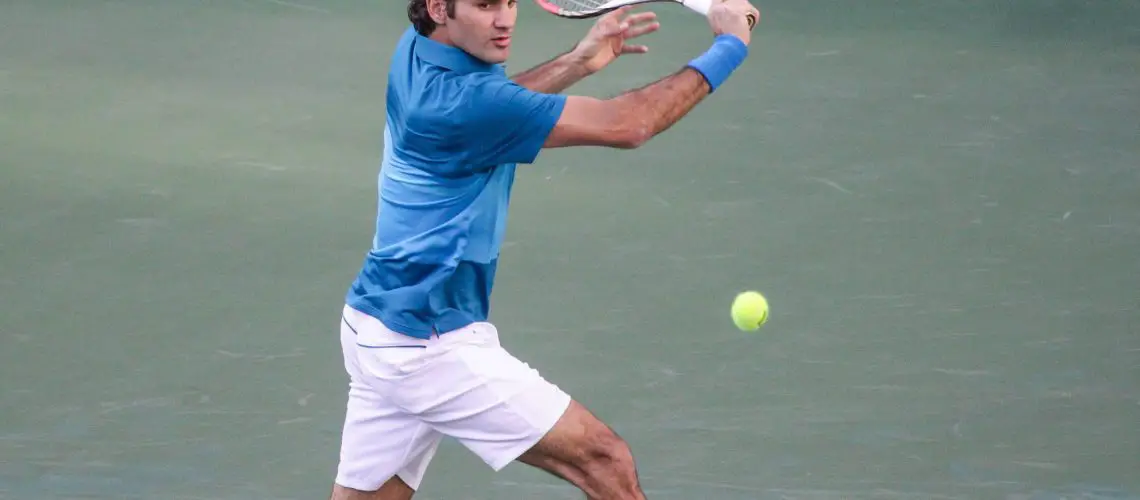We may earn money or products from the companies mentioned in this post.
The Importance of Tennis Coaches in Players’ Careers

When it comes to the world of professional tennis, coaches play a pivotal role in shaping the careers of players They are not just there to provide technical guidance and strategies; they become mentors, confidants, and motivators for their athletes A great tennis coach can make all the difference between a player’s success or failure on the court
Mentoring and Guidance
Tennis coaches serve as mentors to their players, providing them with valuable guidance both on and off the court They help players navigate through challenges, develop mental resilience, and instill important life skills such as discipline, perseverance, and sportsmanship Coaches act as a support system for players, offering advice and encouragement during tough times
Technical Expertise
One of the primary roles of a tennis coach is to refine a player’s technical skills They analyze each aspect of a player’s game – from their serve to their footwork – and provide specific feedback on areas that need improvement Coaches work closely with players to develop proper technique, ensuring that every swing or shot is executed efficiently
Tactical Strategies
Tennis is not just about physical prowess; it also requires strategic thinking Coaches assist players in developing tactical strategies that capitalize on their strengths while exploiting opponents’ weaknesses They analyze match footage, study opponents’ playing styles, and devise game plans tailored to each individual player’s abilities
Different Types of Tennis Coaches and Their Roles

Technical Coach
A technical coach specializes in refining the fundamental skills required for playing tennis They focus on stroke production, footwork patterns, movement efficiency, and other technical aspects of the game Technical coaches often work with beginners or players who need to fine-tune their basic techniques
Tactical Coach
A tactical coach is responsible for developing strategic game plans They analyze opponents’ strengths and weaknesses, devise tactics to exploit them, and help players make on-court decisions that maximize their chances of winning Tactical coaches often work with advanced players who have already mastered the technical aspects of the game
Physical Trainer
A physical trainer’s role is to enhance a player’s physical fitness and conditioning They design training programs that improve strength, speed, agility, endurance, and flexibility Physical trainers also focus on injury prevention and rehabilitation, ensuring players are in peak physical condition for competitive matches
Mental Coach
A mental coach helps players develop a strong mindset and mental resilience They assist athletes in overcoming performance anxiety, managing stress, building confidence, and maintaining focus during matches Mental coaches play a crucial role in helping players handle the psychological challenges associated with professional tennis
Factors affecting a tennis coach’s salary

Being a tennis coach can be a rewarding career, but what factors influence their salary? Let’s explore the key elements that determine how much a tennis coach earns
Level of experience and qualifications
A coach’s level of experience and qualifications play a crucial role in determining their earning potential Coaches who have obtained coaching certifications and degrees often have an advantage over those without formal training These credentials not only enhance their knowledge and skills but also signal credibility to potential clients or employers
In addition to educational qualifications, playing experience and achievements can significantly impact a tennis coach’s salary Coaches with successful playing careers or notable accomplishments are often sought after by players looking for guidance from someone who has been there themselves
Location and demand for coaching services
The location where a tennis coach operates can greatly influence their earning potential Urban areas with high population densities generally offer more opportunities for coaching services compared to rural areas In cities, there is typically greater access to tennis clubs, academies, and private lessons which translates into a higher demand for coaches
Tennis coaches working in prestigious clubs or academies may command higher salaries due to the reputation of the establishment and the affluent clientele they serve On the other hand, coaches offering private lessons in less densely populated areas may need to adjust their rates based on local market conditions
Type of clients coached
The type of clients that a tennis coach works with also affects their earning potential Coaching amateur players may provide steady income, but it might not be as lucrative as working with junior competitive players or professionals
Coaching junior competitive players requires specialized expertise and dedicated training programs, making these coaches highly sought after Their ability to guide young talents towards success can command higher salaries
Working with professional players is the pinnacle of tennis coaching, but it is a highly competitive field Coaches who successfully train and guide professional players to achieve remarkable results often earn substantial salaries and may even receive performance-based bonuses
In conclusion, a tennis coach’s salary is influenced by their level of experience and qualifications, the location where they operate, and the type of clients they coach Aspiring coaches should consider these factors when planning their career path and setting salary expectations
Payment Structures for Tennis Coaches

Tennis coaching is a demanding profession that requires skill, dedication, and expertise Like any other job, compensation plays a crucial role in attracting and retaining talented coaches There are various payment structures available for tennis coaches, each with its own pros and cons Let’s explore the different options and factors that influence them
Hourly Rates: Pros and Cons
One common payment structure for tennis coaches is an hourly rate This approach allows coaches to charge clients based on the time spent on coaching sessions The advantage of this system is that it provides flexibility for both the coach and the client
The determination of hourly rates can vary depending on factors such as experience, qualifications, reputation, and demand Highly experienced coaches or those with specialized skills may command higher hourly rates compared to entry-level coaches
Factors influencing the hourly rate include additional expenses incurred by the coach, such as equipment costs or court fees These considerations are typically factored into the overall price charged per hour of coaching
Salary-Based Compensation: Pros and Cons
Another payment structure option for tennis coaches is salary-based compensation This approach involves coaches being employed by organizations or clubs on a full-time or part-time basis
In full-time positions, coaches receive a consistent salary regardless of how many hours they work each week This stability can be advantageous for coaches who prefer a fixed income without worrying about fluctuating client demand
Part-time positions offer more flexibility in terms of hours worked but may result in less financial security compared to full-time roles
Employers providing salary-based compensation often offer additional benefits to their coaching staff These benefits can range from insurance coverage to retirement plans, providing added security and support for coaches
Contract Agreements with Professional Teams or Individual Players
Experienced tennis coaches may enter into contract agreements with professional teams or individual players These contracts can offer a unique payment structure that includes performance-based bonuses or incentives
Coaches who work with professional teams often have the opportunity to earn bonuses based on team achievements, such as winning tournaments or improving player rankings This motivates coaches to strive for success and rewards their efforts accordingly
In addition to performance-based incentives, contract agreements may also include provisions for travel expenses reimbursement As tennis is an international sport, coaches might need to accompany players to various tournaments around the world Reimbursing travel expenses ensures that coaches are not burdened by the financial costs of traveling
Overall, the payment structures available for tennis coaches offer different advantages and disadvantages depending on individual preferences and circumstances Coaches should carefully consider these options when negotiating compensation agreements to ensure they receive fair remuneration for their valuable expertise and services
Additional Revenue Streams for Tennis Coaches

Tennis coaches have various opportunities to generate additional revenue streams beyond their regular coaching sessions These additional income sources not only provide financial stability but also offer avenues for personal and professional growth Let’s explore some of these revenue-generating options:
Coach-Organized Clinics, Camps, or Tournaments
Organizing clinics, camps, or tournaments can be an excellent way for tennis coaches to expand their reach and boost their income By targeting specific audiences based on age groups and skill levels, coaches can cater to the needs of different players For example, they may organize beginner-level clinics for young children looking to learn the basics of tennis or advanced camps for competitive teenage players seeking to improve their skills
Pricing strategies play a crucial role in attracting participants while ensuring profitability Coaches should consider factors such as location, duration, and the quality of instruction when determining the fees for these events Offering early bird discounts or package deals can also incentivize players to sign up
Online Coaching Content
In today’s digital age, creating online coaching content has become increasingly popular among tennis coaches They can create instructional videos covering various aspects of the game – from basic techniques to advanced strategies – and make them available through subscription platforms or online courses
This approach allows coaches to reach a broader audience globally and monetize their expertise effectively By offering valuable insights and personalized instruction through video lessons, they can attract aspiring players who may not have access to in-person coaching or prefer learning at their own pace
Sponsorships and Endorsements
Establishing sponsorships and endorsements can be another lucrative avenue for tennis coaches to generate additional income while gaining recognition within the industry Coaches who have built a strong reputation and have a significant following can explore brand representation deals
Partnering with tennis equipment manufacturers, sports apparel brands, or even local businesses can result in financial support or product endorsement opportunities This not only provides coaches with financial benefits but also enhances their credibility and visibility among players and potential clients
Useful Links

How Much Do Tennis Coaches Make? Interesting Facts
Tennis Coach Salary (June 2023)
How Much Do Tennis Coaches Earn? Salaries at All …
Do professional tennis coaches get a percentage of the …
How Much Does A Tennis Coach Make?
How Much Do Tennis Coaches Make?
Salary: Tennis Coach in United States June 2023
How do professional tennis coaches get paid?
Tennis Coach Hourly Pay in 2023
Tennis Coach Salary in the United States
“99% of us are not getting paid” : Tennis coaches plead for a …
College Tennis Coaching Jobs | Head & Assistant …
Coaching – Average Salary? : r/10s
Tournament Director And Tennis Coach Salary
college tennis coaches salaries
Tennis Coach $60000 Jobs (with Salaries) 2023
Tennis Coach Salary in India
‘Why am I here, playing for literally $6?’ — The stunning …
Do People Get Paid When They Lose Tennis Match?






